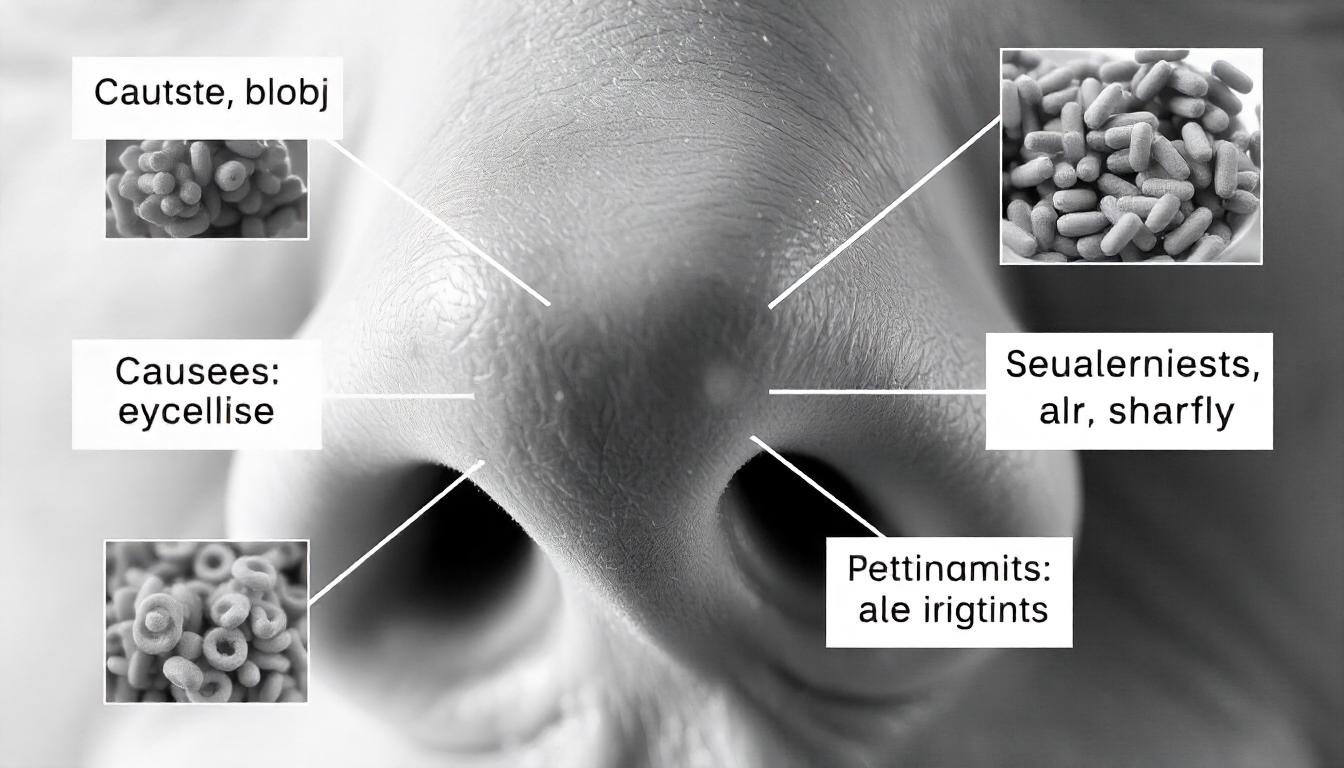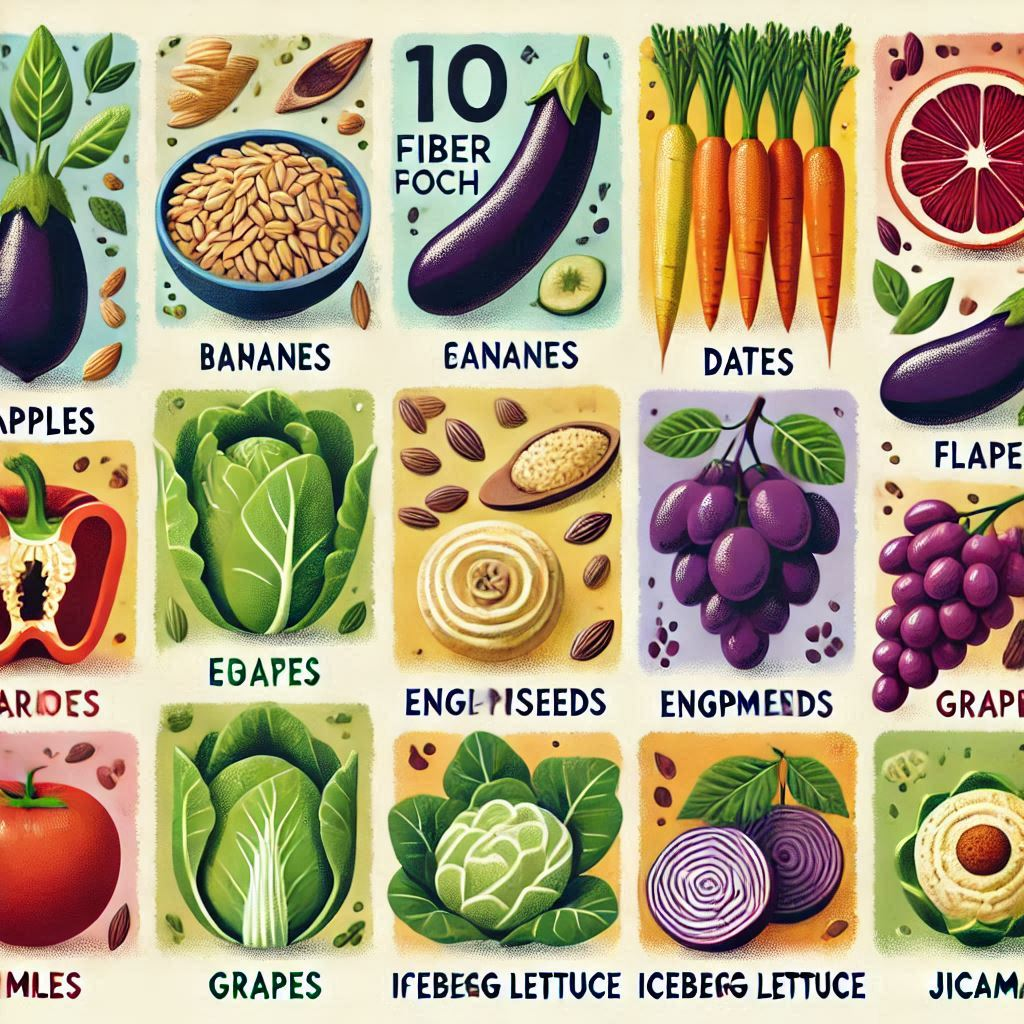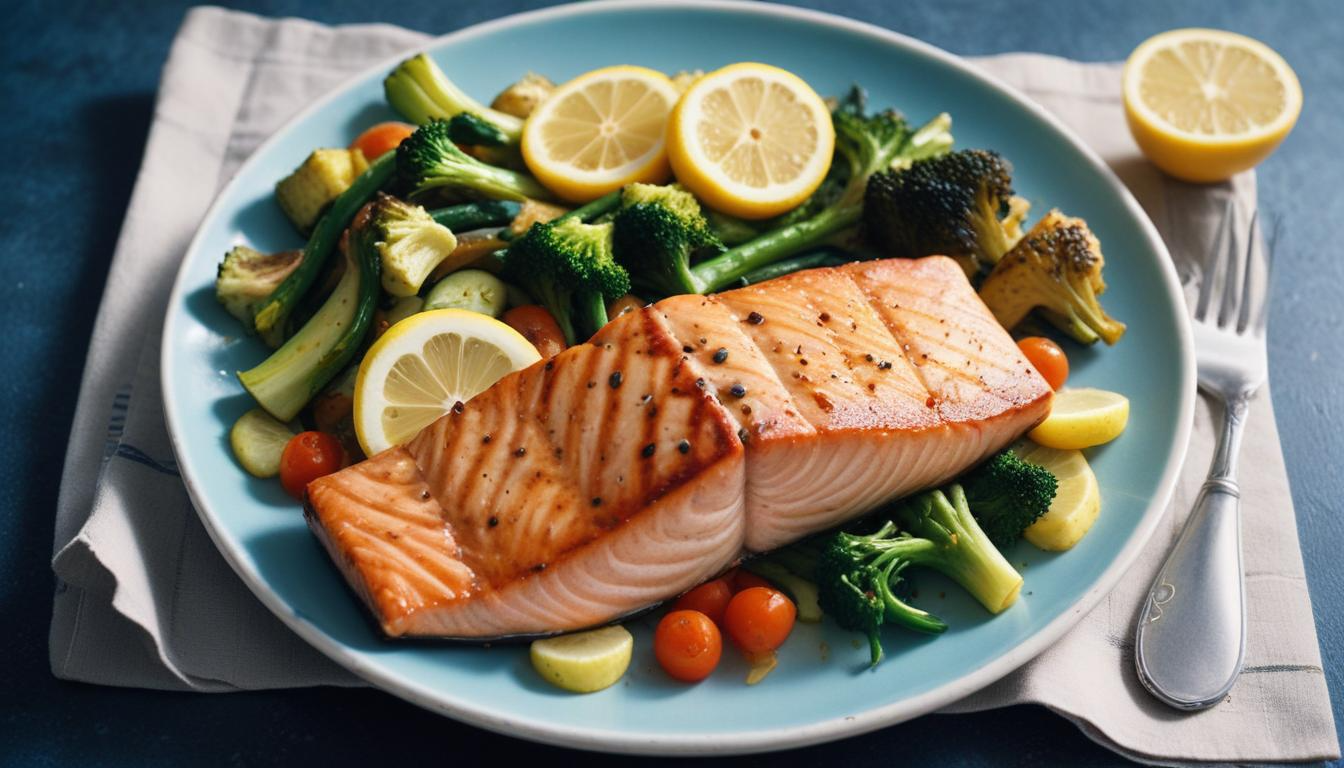
9 Fantastic Foods Rich in Vitamin D3 for Health!
Explore 9 powerful foods rich in vitamin D3 to boost bone health, immunity, and enhance your mood for a healthier lifestyle.
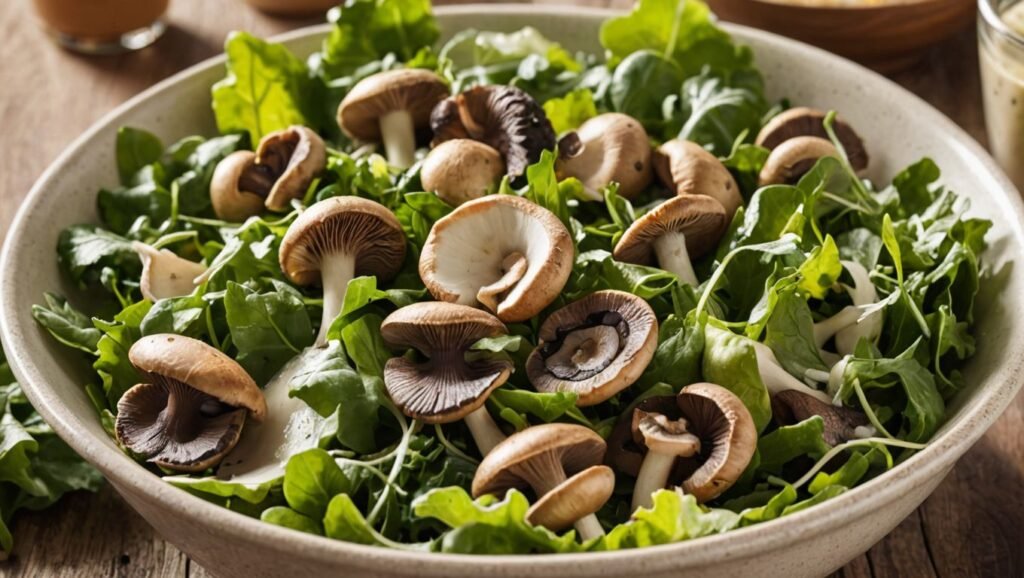

Introduction
Brief Overview of Vitamin D3 and Its Importance
Vitamin D3, also known as cholecalciferol, is a fat-soluble vitamin that plays a vital role in maintaining overall health. It is unique because it can be synthesized by the skin when exposed to sunlight. However, due to various factors such as limited sun exposure, geographical location, and lifestyle choices, many people may not get enough Vitamin D3 from sunlight alone. This makes it crucial to obtain vitamin D3 from dietary sources to ensure optimal health.
These foods are rich in vitamin D3, and incorporating them into your diet can significantly improve your wellness.
Explanation of How Vitamin D3 Benefits Health
Consuming foods rich in vitamin D3 can lead to better health outcomes.
Vitamin D3 is essential for several bodily functions and contributes to overall well-being in numerous ways. Some of its key benefits include:
- Bone Health: Vitamin D3 promotes calcium absorption in the gut, which is essential for maintaining strong and healthy bones. It helps prevent bone disorders such as rickets in children and osteoporosis in adults.
- Immune System Support: Vitamin D3 enhances the pathogen-fighting effects of monocytes and macrophages, white blood cells that are crucial for the immune response. It also decreases inflammation, boosting overall immune function.
- Mood and Mental Health: Adequate levels of Vitamin D3 are associated with improved mood and a reduced risk of depression. It plays a role in regulating mood and warding off mental health disorders.
- Anti-Inflammatory Properties: Vitamin D3 helps reduce chronic inflammation, which is linked to various chronic diseases such as heart disease, diabetes, and autoimmune disorders.

Section 1: Understanding Vitamin D3
What is vitamin D3?
Vitamin D3 (cholecalciferol) is one of the two main forms of vitamin D, the other being vitamin D2 (ergocalciferol). Vitamin D3 is the form that is naturally produced in the skin in response to sunlight exposure and is also found in certain animal-based foods. It is considered more effective than vitamin D2 in raising and maintaining vitamin D levels in the blood.
Why is it essential for health?
Vitamin D3 is crucial for various bodily functions, including:
- Calcium Absorption: It aids in the absorption of calcium and phosphorus from the gut, which is essential for maintaining healthy bones and teeth.
- Immune Function: Vitamin D3 supports the immune system by enhancing the pathogen-fighting abilities of white blood cells and reducing inflammation.
- Cell Growth: It plays a role in cell growth and differentiation, which is important for overall health and the prevention of certain diseases.
- Hormone Regulation: Vitamin D3 is involved in regulating hormones that influence mood, appetite, and sleep.
Recommended Daily Intake
The recommended daily intake of vitamin D3 varies based on age, sex, and life stage. The following are general guidelines:
- Infants (0-12 months): 400 IU (10 mcg) per day
- Children (1-18 years): 600 IU (15 mcg) per day
- Adults (19-70 years): 600-800 IU (15-20 mcg) per day
- Adults (71 years and older): 800 IU (20 mcg) per day
- Pregnant and lactating women: 600-800 IU (15-20 mcg) per day
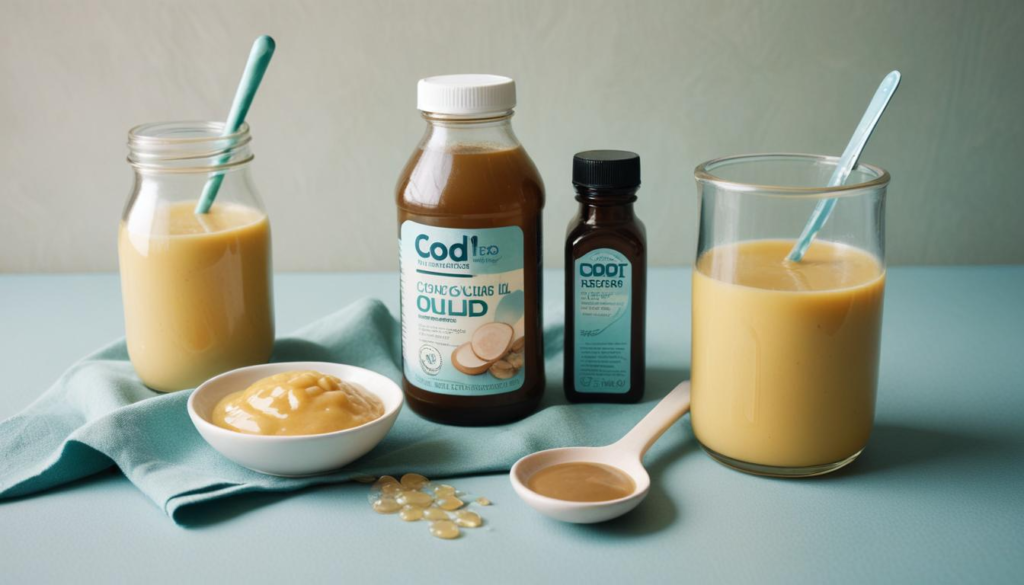
Section 2: Top 9 Foods High in Vitamin D3
1. Fatty Fish (Salmon, Mackerel, Sardines)
Nutritional Benefits:
Fatty fish are one of the richest natural sources of vitamin D3. They are also high in omega-3 fatty acids, which support heart health, brain function, and inflammation reduction. Additionally, they provide high-quality protein and essential minerals like selenium and iodine.
How Much Vitamin D3 They Contain:
- Wild-caught salmon: Around 570-900 IU per 3.5-ounce (100-gram) serving
- Mackerel: Approximately 250-400 IU per 3.5-ounce serving
- Sardines: About 180 IU per 3.5-ounce serving
2. Fish Liver Oils (Cod Liver Oil)
Nutritional Benefits:
Cod liver oil is a powerful supplement packed with vitamin D3, vitamin A, and omega-3 fatty acids. It promotes bone health, reduces inflammation, and enhances immune function.
How Much Vitamin D3 They Contain:
- Cod liver oil: About 1,360 IU per tablespoon (15 ml)
3. Egg Yolks
Nutritional Benefits:
Egg yolks are a convenient source of vitamin D3 and provide essential fatty acids, choline, and high-quality protein. They support brain function, eye health, and cell membrane integrity.
How Much Vitamin D3 They Contain:
- One large egg yolk: Around 37 IU of Vitamin D3
4. Fortified Foods (Milk, Cereal, Orange Juice)
Nutritional Benefits:
When shopping, look for dairy products that are fortified with vitamin D3.
Many dairy and non-dairy products are fortified with vitamin D3 to help prevent deficiencies. These foods also offer calcium, protein, and other essential nutrients that support bone health and metabolism.
How Much Vitamin D3 They Contain:
Sun-exposed mushrooms are a plant-based source rich in vitamin D3 that you shouldn’t miss.
- Fortified milk: Around 115-130 IU per cup (240 ml)
- Fortified orange juice: About 100 IU per cup
- Fortified cereals: Approximately 40-100 IU per serving
5. Mushrooms (Shiitake, Portobello)
Nutritional Benefits:
Mushrooms are the only plant-based source of vitamin D. They are rich in antioxidants, fiber, and B vitamins, supporting immune function and gut health.
How Much Vitamin D3 They Contain:
- Sun-exposed mushrooms: Up to 400 IU per 3.5-ounce serving
6. Beef Liver
Nutritional Benefits:
Beef liver is an excellent source of vitamin D3, iron, B vitamins, and essential minerals. It supports red blood cell production, energy metabolism, and detoxification.
How Much Vitamin D3 They Contain:
- Beef liver: Around 42 IU per 3.5-ounce serving
7. Fortified Plant-Based Milks (Almond Milk, Soy Milk)
Nutritional Benefits:
These plant-based alternatives provide a dairy-free way to obtain Vitamin D3. They also contain calcium, vitamin B12, and protein, supporting bone and muscle health.
How Much Vitamin D3 They Contain:
- Fortified almond/soy milk: About 100 IU per cup (240 ml)
8. Cheese
Nutritional Benefits:
Fortified yogurt is another excellent choice for those needing more vitamin D3.
Cheese is a delicious source of vitamin D3, calcium, and protein. It supports strong bones, teeth, and muscle function.
How Much Vitamin D3 They Contain:
- Cheddar cheese: Around 12 IU per ounce (28 grams)
9. Fortified Yogurt
Nutritional Benefits:
In summary, foods rich in vitamin D3 are essential for maintaining health.
Fortified yogurt provides vitamin D3 along with probiotics, calcium, and protein. It supports digestive health, immune function, and strong bones.
How Much Vitamin D3 They Contain:
- Fortified yogurt: Around 80-100 IU per serving
Section 3: Health Benefits of Vitamin D3
1. Bone Health and Calcium Absorption
Vitamin D3 plays a crucial role in calcium absorption, helping maintain strong bones and teeth. A deficiency can lead to rickets in children and osteoporosis in adults.
2. Immune System Support
Vitamin D3 enhances immune function, reducing the risk of infections, colds, and autoimmune diseases.
3. Mood and Mental Health
Adequate vitamin D3 levels are linked to a lower risk of depression, anxiety, and cognitive decline. It helps regulate neurotransmitters like serotonin, which influence mood.
4. Anti-inflammatory Properties
Vitamin D3 helps regulate inflammation, reducing the risk of chronic diseases like heart disease, diabetes, and arthritis.
By choosing foods rich in vitamin D3, you’re supporting your overall health.
Section 4: Incorporating Vitamin D3 into Your Diet
Make sure to include a variety of foods rich in vitamin D3 for a balanced diet.
Many of these delicious foods are not only rich in vitamin D3 but also provide other essential nutrients.
Tips for Including These Foods in Your Daily Meals
- Add salmon or mackerel to salads or rice bowls.
- Use fortified milk in smoothies or coffee.
- Incorporate eggs into breakfast dishes like omelets.
- Snack on cheese or fortified yogurt.
- Choose fortified cereals and plant-based milks.
Recipes and Meal Ideas
- Salmon and Avocado Salad—grilled salmon with leafy greens, avocado, and a lemon dressing.
- Vitamin D Smoothie—fortified milk, yogurt, banana, and honey.
- Mushroom Stir-Fry—Sauté sun-exposed mushrooms with garlic, olive oil, and soy sauce.
- Cheesy Scrambled Eggs—Eggs with cheddar cheese for a vitamin D-rich breakfast.
- Fortified Cereal Bowl—Serve with almond milk, nuts, and berries for a nutritious start.
Conclusion
Vitamin D3 is essential for overall health, supporting strong bones, immune function, and mental well-being. By incorporating these nutrient-rich foods into your diet, you can ensure adequate vitamin D3 intake for long-term health benefits. Start adding these foods to your meals today for a healthier future!
